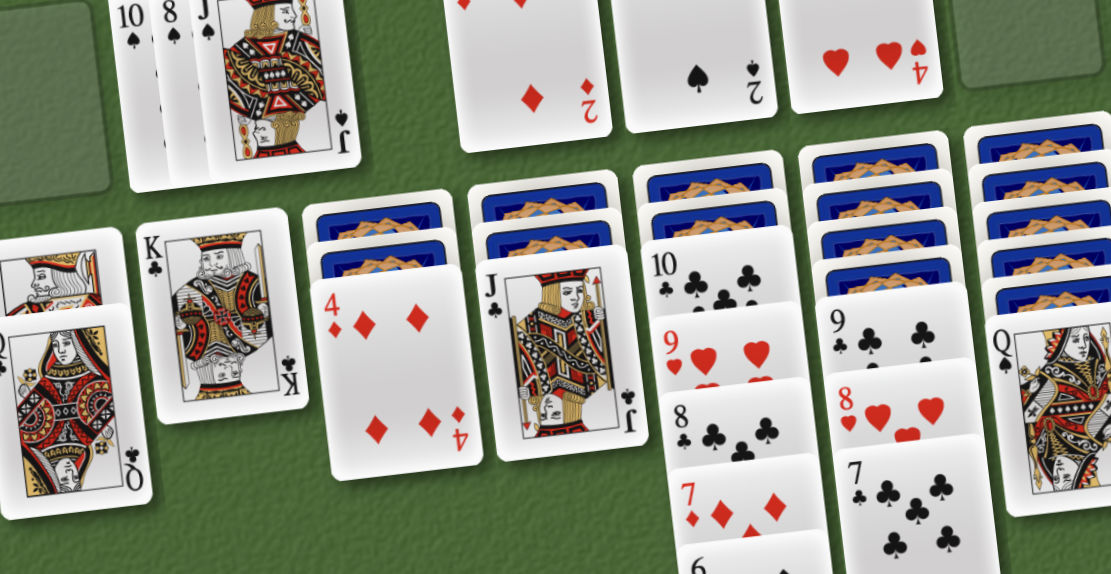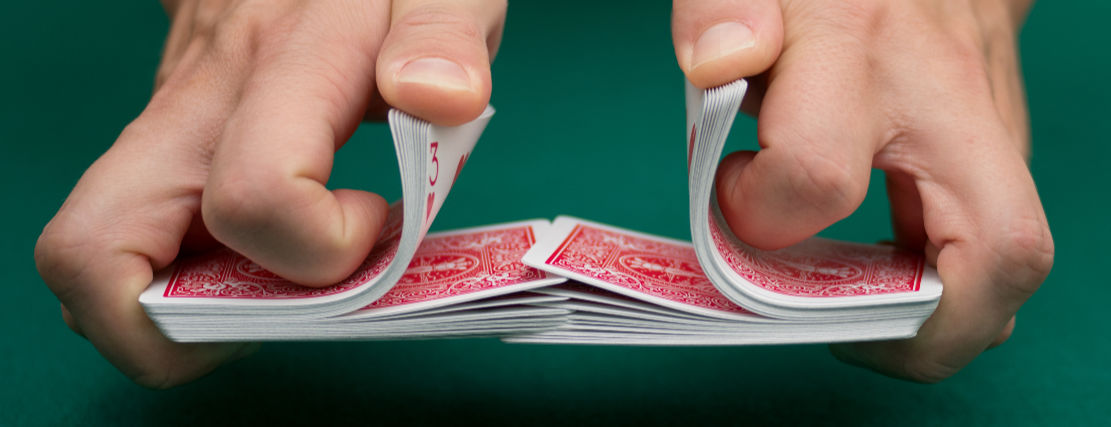
THE SOLITAIRE APP on my phone is kind enough to inform me when a particular shuffle has no solution.
“No useful moves detected,” it says.
I love that phrasing. No useful moves. “Sure,” it implies, “you could keep moving cards around, hoping for a breakthrough, if that makes you happy dear player, but don’t pretend you’re accomplishing anything.”
What a waste
How many times in life, after lots of determination, hard work and expended resources, do we learn we had been wasting our time, that nothing we could do would bring about the desired outcome? Perhaps you or I are in the middle of one or more of those situations right now but we haven’t realized it yet.
My solitaire game provides those of us who don’t learn from our mistakes, or who believe making a different choice earlier would change the outcome, the option to replay a dead end shuffle. If at first you don’t succeed, try, try again, right? But there’s seldom any going back and starting over in the real world.
If only I had a clue
It’s hard enough doing the things that actually work. We don’t want to waste time and energy on things that won’t ever work. It would be great if we all had magical Futility Detectors, an all-knowing, totally benevolent gizmo that tells us in a soothing, forgiving, avuncular voice when our moves are useless.
“Al, my friend, you can keep moving around the cards of your life, but it’s not useful. There’s no solution down this path. What do you say you cut your losses and take a different road, try something different?”
No, I’m not quitting this nomadic life. I’m just waxing philosophical and offering some unsolicited advice. Examine your life, your goals, the time and energy spent on it. Are you making useless moves? Is there really any possibility of a win? Is it time to change course?
Not quitting does not guarantee a win
American culture tells us it’s wrong to quit. Losers quit, right? (Insert everything you’ve ever heard in school, pep talks, company meetings or the gym.) But chasing futility is also losing.

For those times it’s possible to reach the goal, but at way too much cost, it would also be great to have a personal Point of Diminishing Returns Detector. Have you ever struggled to push through to the goal only to discover at the end there’s no “there” there? Yeah, me too.
A win is not always a win
To help us decide what to do when the Point of Diminishing Returns Detector alerts us, we should also have a Success Simulator. Again, the wise, soothing voice:
“Al, here’s what it would be like if you were finally able to grab the prize. Great, right? And here’s what it would be like after the rush of accomplishment fades. Will it be worth what you’re going to have to do to get there? Are you sure? If so, continue on. If not, consider reshuffling the deck and starting a new game.”
But really, all we can do is give it a try, do our best, and not get so immersed in the idealized outcome that we lose awareness of our actual situation.


Thank you. These are such true words, Al.
What is the point of chasing after something that is not going to work? At some point, we know what that is, when we are in that situation.
And we’re just too scared to turn around and do something else. Or pursuing something that is not worth what you have spent in time or resources to get it?
This reminds me of what I have been told is an old Turkish proverb: “No matter how far you have gone down the wrong road, turn around.”
This is possibly the most useful analogy I’ve ever read. Relate so much. Recently I decided to stop. Just stop. Do nothing. Stop trying to come up with the perfect plan to change everything and meet all my wishes. Stop trying to fix all the problems. Just be. I have to say it’s much more peaceful this way.
Thank you so much for this thought provoking metaphorical wizardry.
There’s a saying in 12-step meetings: “The definition of insanity is doing the same thing over and over again and expecting the results to be different.” Works in this situation, too!
Thank you.
I was always told, because I am female, that I was flighty. Actually, I told myself when I was very young that I wouldn’t compromise my happiness by living in unhappiness.
I was told I didn’t have enough “stick-to-it-iveness.”
Karen, we really are walking parallel paths.
I need to shoot you an email, because i am feeling the same things. I’m not batman. I can’t save the world.
When i strip away everything i have lost and look at what’s left, i see a sixteen year old kid with a dog, a backpack, and a guitar.
She had her share of problems and her thumb broke down, but there used to be this thing called music, see…..
So I lost somebody else’s war.
Big deal. I’d rather learn a new-to-me Elton John song than cry over spilled milk.
Have a prize if you (think you) won the “culture wars” because you sure deserve one!
Let’s take care of what we have–EACH OTHER!!!!
See you down the road, family.
The purpose of solitaire, is to waste time, or amuse ones self.
To not try is to lose.
If everything was guaranteed, it would be easy.
A good reasonable plan can help determine if something has a chance to work or not. Seek out people who give good advice for you. Avoid people who give you advice that is good for themselves.
If you only know people who give bad advice, or lie, and cheat and steal from you, then keep the plan a secret until completed, and exclude them.
If plans do not work, figure out why and try again, or try something else.
We think alike Peter.
..and at age 58 I continue to learn. I actually would not want a futility detector. To me even a lose is a win because I learn so much along the way.
There does come a point in my plan that if I continue to try different ways to succeed and it feels as if it’s really being forced, I will change tactics. I truly believe that things happen for a reason, and when they fall more easily into place they are meant to be.
By the way I’m one of those annoying people who wins at solitaire many many times. but I do play with an old fashioned deck and not a computer. No offense Al I also like books with paper pages over kindles lol.
I love your analogy! My solitaire app says all its games are winnable. But, I don’t win them all because there’s only so many tries I am willing to make for any one game. I apply that to my life as well–just so many tries then find something else.